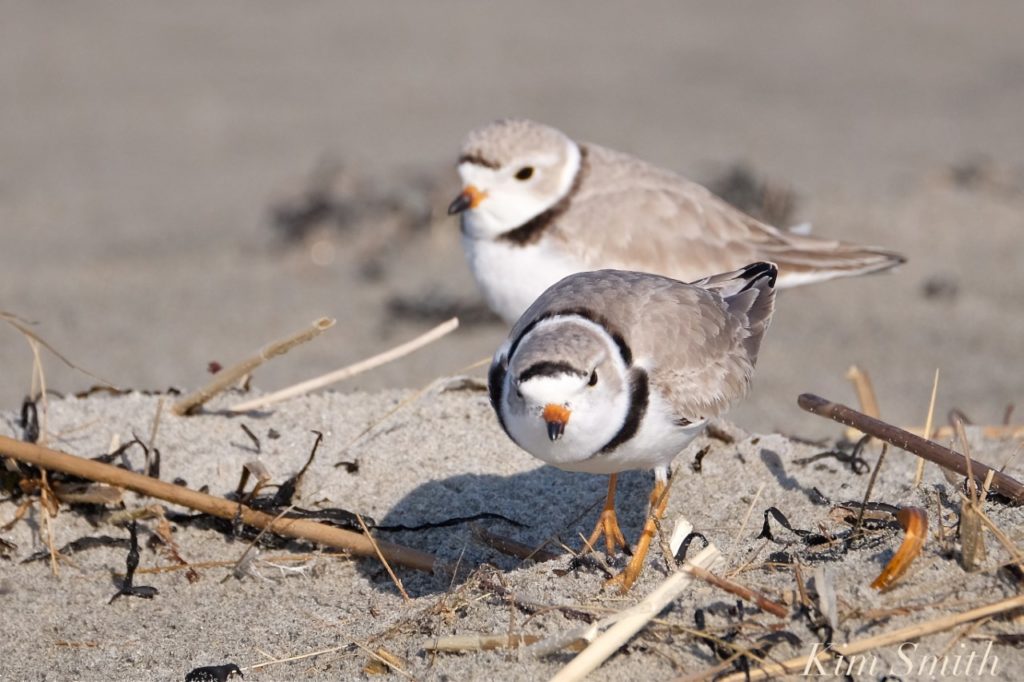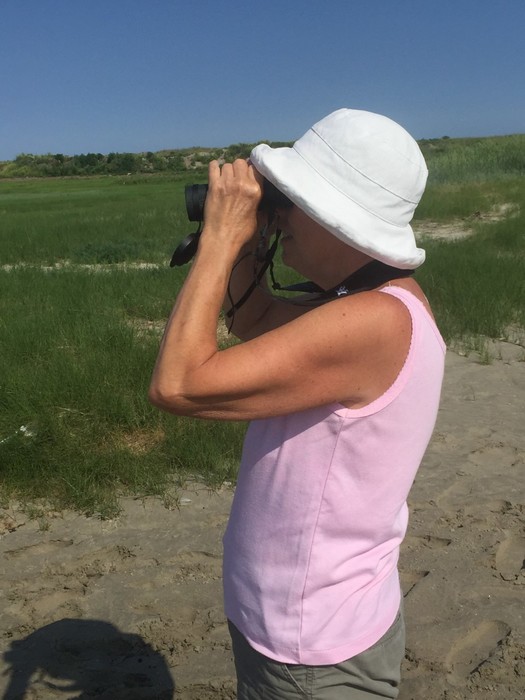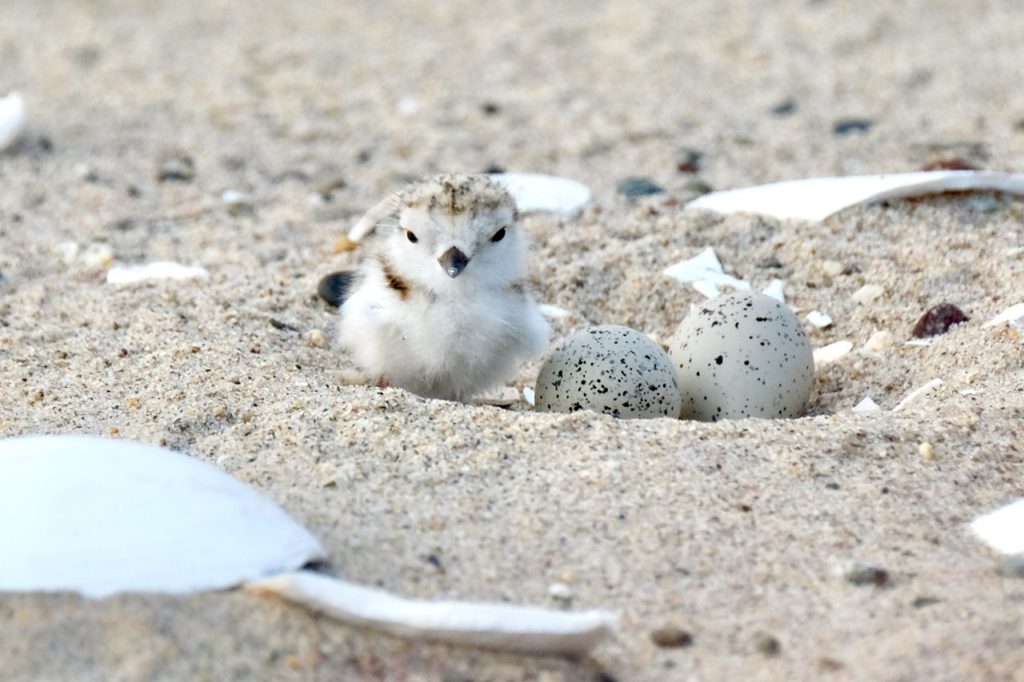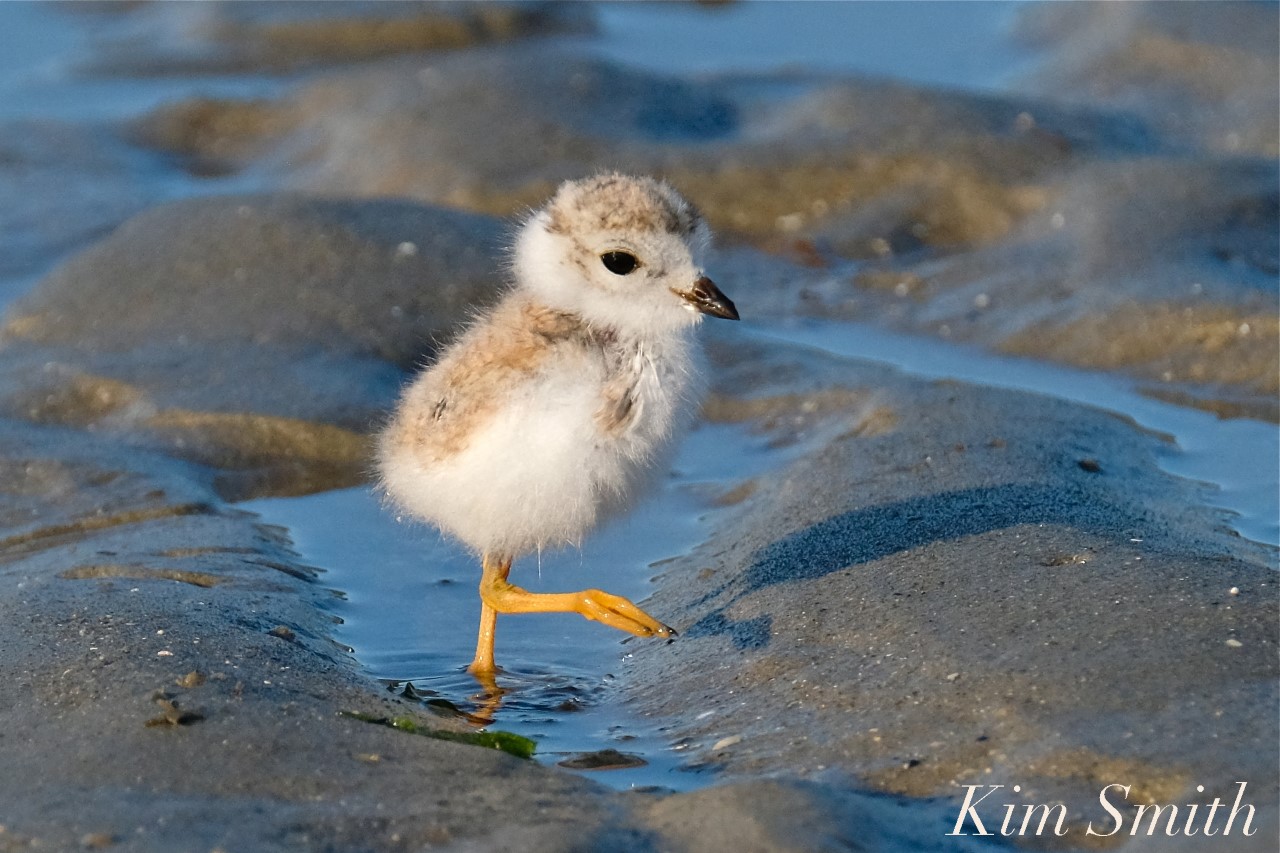Every summer, New Englanders head to local beaches in droves for sun, swimming, and relaxation. It’s those very numbers that have pushed the Charadrius melodus, or Piping Plover, precariously close to extinction. Competing with humans for habitat on local beaches, they have steadily lost ground to the point that in Massachusetts, Piping Plovers reached a critically low 140 breeding pairs in 1986.
Realizing that extinction was becoming a real possibility for these native shorebirds, conservation organizations began to help by cordoning off nesting areas on local beaches during late spring into early summer. These efforts have helped the number of Piping Plovers grow to a current estimate of 700 breeding pairs, but they are still categorized as threatened both on the Massachusetts and Federal Endangered Species Lists.

Although they are small, only about seven inches in length, the Piping Plover undertakes an extraordinary migration each year, spending winter months in an area ranging from North Carolina to Florida, the Gulf of Mexico, and the Caribbean before returning to the same beach each spring on the Eastern Seaboard and Great Lakes to nest and raise their young. Young Piping Plovers are especially vulnerable during the 21 to 35 days it takes for them to develop enough to fly.
In 2016, a nesting pair was spotted on Good Harbor Beach in Gloucester, and the volunteer effort to help save them began. While the driving force is the goal to help save a species before it’s too late, there is also a financial benefit to local municipalities. State and federal regulations regarding endangered species include hefty fines imposed on individuals who destroy nesting sites, an activity referred to as ‘take.’ Cities and towns may also face hefty fines if endangered species are not protected in their jurisdiction.

David Rimmer, Director of Land Stewardship at Essex County Greenbelt, has been involved with protecting Piping Plovers since the 1980s. He explains the importance of this effort as “biodiversity and legal responsibility. Piping Plovers are an integral part of the coastal beach ecosystem and suffered greatly from human impact, so our job is to mitigate those impacts by protecting habitat and species. The U.S. Endangered Species Act sets regs that require protective measures be in place to avoid ‘take.’ So public and private beach owners are legally bound to provide a reasonable level of protection.”
For the past four years, a dedicated group of volunteers has worked tirelessly to help protect the Good Harbor Beach Piping Plovers by monitoring their nesting area and keeping watch over the newly hatched chicks. In 2019, three out of the four chicks survived to fledge. This year, the nesting pair produced four chicks, three of which were lost within the first two nights after hatching. The remaining chick has been watched over by a group of volunteers known as Ambassadors.
In addition to the dedicated volunteer efforts of the Ambassadors and Essex County Greenbelt, the Piping Plovers have had supporters including Gloucester Mayor Sefatia Romeo Theken, Gloucester Ward I Counsellor Scott Memhard, employees from Gorton’s, Members of the Gloucester Department of Public Works, dedicated volunteers from all over the North Shore and beach-goers who become fascinated by the family dynamic of the Plovers.

Documentary film-maker and writer Kim Smith has spearheaded the Ambassador effort. She first noticed the Piping Plovers on the beach in 2016 and knew she had to help. She says, “My greatest hope is that we Ambassadors will continue to work with the City and our Greenbelt partners in helping the Good Harbor Beach Piping Plovers successfully fledge chicks, while at the same time help our community understand that the beach is for people and for wildlife. My goal is to keep our beaches open to the public while also coexisting with nesting shorebirds. Our Good Harbor Beach Piping Plovers provide a uniquely wonderful opportunity to observe their life story unfolding right before our eyes.”
Smith is currently working on a film about Piping Plovers and she has created an educational lecture program for all age groups. Volunteers are always welcome to join the effort. Interested volunteers may reach Kim Smith at kimsmithdesigns@hotmail.com.

